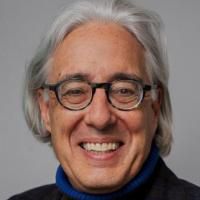Posttraumatic stress disorder, trauma, and accelerated biological aging among post-9/11 veterans.
Date
2024-01
Journal Title
Journal ISSN
Volume Title
Repository Usage Stats
views
downloads
Citation Stats
Attention Stats
Abstract
People who experience trauma and develop posttraumatic stress disorder (PTSD) are at increased risk for poor health. One mechanism that could explain this risk is accelerated biological aging, which is associated with the accumulation of chronic diseases, disability, and premature mortality. Using data from 2309 post-9/11 United States military veterans who participated in the VISN 6 MIRECC's Post-Deployment Mental Health Study, we tested whether PTSD and trauma exposure were associated with accelerated rate of biological aging, assessed using a validated DNA methylation (DNAm) measure of epigenetic aging-DunedinPACE. Veterans with current PTSD were aging faster than those who did not have current PTSD, β = 0.18, 95% CI [0.11, 0.27], p < .001. This effect represented an additional 0.4 months of biological aging each year. Veterans were also aging faster if they reported more PTSD symptoms, β = 0.13, 95% CI [0.09, 0.16], p < 0.001, or higher levels of trauma exposure, β = 0.09, 95% CI [0.05, 0.13], p < 0.001. Notably, veterans with past PTSD were aging more slowly than those with current PTSD, β = -0.21, 95% CI [-0.35, -0.07], p = .003. All reported results accounted for age, gender, self-reported race/ethnicity, and education, and remained when controlling for smoking. Our findings suggest that an accelerated rate of biological aging could help explain how PTSD contributes to poor health and highlights the potential benefits of providing efficacious treatment to populations at increased risk of trauma and PTSD.
Type
Department
Description
Provenance
Subjects
Citation
Permalink
Published Version (Please cite this version)
Publication Info
Bourassa, Kyle J, Melanie E Garrett, Avshalom Caspi, Michelle Dennis, Katherine S Hall, Terrie E Moffitt, Gregory A Taylor, undefined VA Mid Atlantic MIRECC Workgroup, et al. (2024). Posttraumatic stress disorder, trauma, and accelerated biological aging among post-9/11 veterans. Translational psychiatry, 14(1). p. 4. 10.1038/s41398-023-02704-y Retrieved from https://hdl.handle.net/10161/31454.
This is constructed from limited available data and may be imprecise. To cite this article, please review & use the official citation provided by the journal.
Collections
Scholars@Duke

Kyle Bourassa
Kyle Bourassa is a Staff Psychologist in the Research Service of the Durham VA Medical System, an Affiliate Investigator at Georgetown University in the Department of Psychology, and a Senior Fellow of the Center for the Study of Aging and Human Development at Duke University Medical Center

Avshalom Caspi
Caspi’s research is concerned with three questions: (1) How do childhood experiences shape aging and the course of health inequalities across the life span? (2) How do genetic differences between people shape the way they respond to their environments? (3) How do mental health problems unfold across and shape the life course?

Katherine Shepherd Hall
My research is focused on developing evidence-based physical activity interventions for older adults with an eye to preserving functional independence and quality of life. I am particularly interested in developing exercise programs to promote physical and psychological well-being among older veterans with posttraumatic stress disorder (PTSD).

Terrie E. Moffitt
Terrie E. Moffitt, Ph.D., is the Nannerl O. Keohane University Professor of Psychology at Duke University, and Professor of Social Development at King’s College London. Her expertise is in the areas of longitudinal methods, developmental theory, mental disorders and antisocial behaviors, neuropsychology, and genomics in behavioral science. She is currently uncovering the consequences of a lifetime of mental and behavioral disorder on processes of aging. She is the Associate Director of the Dunedin Longitudinal Study, which follows a 1972 birth cohort in New Zealand. She also co-founded the Environmental Risk Longitudinal Twin Study (E-Risk), which follows a 1994 birth cohort in the UK. Dr. Moffitt also is a licensed clinical psychologist, with specialization in neuropsychological assessment. She collaborates with criminologists, economists, geneticists, epidemiologists, sociologists, demographers, gerontologists, statisticians, neuroscientists, medical scientists, opthalmologists, and dentists. Dr. Moffitt is a fellow of the National Academy of Medicine and the American Academy of Arts and Sciences , as well as the British Academy, Academy of Medical Sciences (UK), Academia Europa, Association of Psychological Science, and the American Society of Criminology. She holds honorary doctorates from the Katholieke Universiteit Leuven, Belgium, and Universitat Basel, Switzerland. For her research, Dr. Moffitt has received both the American Psychological Association's Early Career Contribution Award and Distinguished Career Award. Dr. Moffitt was also awarded a Royal Society-Wolfson Merit Award, the Klaus-Grawe Prize, and was a recipient of the Stockholm Prize in Criminology, NARSAD Ruane Prize, the Klaus J. Jacobs Research Prize, and in 2022 the Grawemeyer Prize. Her service includes serving as chair of the Board on Behavioral, Cognitive, and Sensory Science at NASEM, Chair of the NIA Data Monitoring Committee for the Health and Retirement Study, and Chair of the Jury for the Klaus J. Jacobs Prize in Switzerland. Dr. Moffitt attended the University of North Carolina at Chapel Hill for her undergraduate degree in psychology. She continued her training in psychology at the University of Southern California, receiving an M.A. in experimental animal behavior, and a Ph.D. in clinical psychology. She also completed postdoctoral training in geriatrics and neuropsychology at the University of California Los Angeles Neuropsychiatric Institute. In her spare time, she works on her poison-ivy farm in North Carolina.

Gregory Alan Taylor
My lab uses mouse genetic modeling and molecular and cellular techniques to study basic biochemical pathways of relevance to aging biology.
I. Aging is often accompanied by increases in inflammation. A major interest of the lab is how perturbations in the regulation of autophagy and mitochondrial dynamics in cells are linked to inflammation. One project in the lab focuses on a family of interferon-gamma and LPS regulated proteins, the Immunity Related GTPases (IRGs). The lab has shown that mice and cells lacking one of these proteins, Irgm1, have excessive inflammatory responses that are accompanied by decreases in autophagy and mitophagy, and altered cellular metabolism. IRG genes in human (IRGM) have been linked to several inflammatory diseases including Crohn’s disease and sepsis. Current work in the lab focuses on their role in those diseases using bacterial and relevant mouse models.
II. Altered expression of the cytokine Transforming Growth Factor beta (TGF-b) has been linked with a number of aging processes, including stem cell and neural function. TGF-b is consequently a therapeutic target for a number of age-related diseases. The lab is studying a novel regulator of TGF-b expression called P311, which drives TGF-b translation. Mice have been created that lack P311 and are being used to address the role of P311 in a number of physiological processes.

Allison Elizabeth Ashley-Koch
My work focuses on the dissection of human traits using multi-omic technologies (genetics, epigenetics, metabolomics and proteomics). I am investigating the basis of several neurological and psychiatric conditions such as neural tube defects and post-traumatic stress disorder. I also study modifiers of sickle cell disease.
Unless otherwise indicated, scholarly articles published by Duke faculty members are made available here with a CC-BY-NC (Creative Commons Attribution Non-Commercial) license, as enabled by the Duke Open Access Policy. If you wish to use the materials in ways not already permitted under CC-BY-NC, please consult the copyright owner. Other materials are made available here through the author’s grant of a non-exclusive license to make their work openly accessible.
